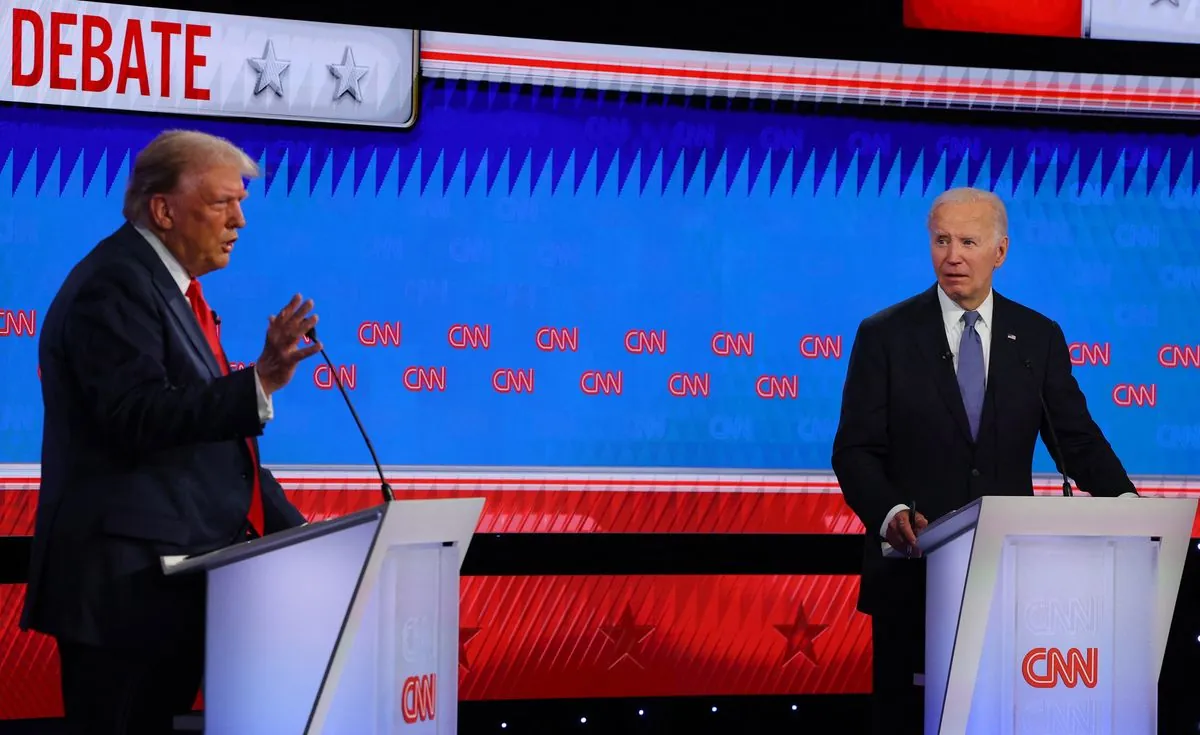2024 U.S. Election: Policy vs. Personality in a Polarized Landscape
The 2024 U.S. presidential race remains steady despite recent upheavals. Deep polarization and the focus on Trump's personality versus policy claims shape the electoral landscape.

The 2024 United States presidential election is unfolding in a landscape of remarkable stability, despite recent tumultuous events. This steadiness, paradoxically, stems from the deep polarization that has come to define American politics, particularly concerning Donald Trump.
In the previous two election cycles of 2016 and 2020, Trump secured slightly under 50% of the vote, a figure that aligns closely with his current polling numbers. The transition from Joe Biden to Kamala Harris as the Democratic frontrunner has solidified Democratic support, potentially influencing voter turnout. However, the overall race has merely shifted from a narrow Trump lead to a slight Harris advantage.
The 2024 campaign continues to revolve around Trump, much like the 2020 election. However, a notable difference has emerged in the presentation of Trump's campaign. While his previous runs were characterized by policy indifference (2016) and incumbency (2020), the current effort is often portrayed as policy-centric.
This portrayal, however, is not entirely accurate. Trump's campaign has offered few concrete policy proposals. The "Agenda 47" initiative, intended to be the policy arm of his primary campaign, largely consisted of impromptu responses to current right-wing concerns. This lack of a comprehensive policy platform has made it challenging for Trump to distance himself from the controversial "Project 2025" outline, which has gained significant public awareness and disapproval.
The argument that Trump would prevail in a policy-focused campaign is not supported by evidence. Rather, it appears to be an attempt to shift focus away from contentious issues such as abortion rights and democratic stability, towards areas perceived as Trump's strengths, such as the economy and immigration.
Immigration, in particular, has become a focal point of Trump's campaign. However, his approach often relies more on stoking fears than presenting detailed policy solutions. The recent controversy surrounding false claims about Haitian immigrants in Ohio exemplifies this strategy, with Trump and his running mate, JD Vance, seizing on unsubstantiated rumors for political gain.
"About 6 in 10 Americans also thought the goal was to 'raise awareness about larger issues of immigration' — with 9 in 10 Republicans agreeing."
This incident highlights how Trump's supporters often reframe his controversial statements as policy discussions, even when they lead to real-world consequences such as threats against community leaders and migrants.
It's crucial to note that Trump's politics have consistently centered around his personality rather than policy. His appeal lies in his willingness to challenge norms and institutions in pursuit of his supporters' grievances. The claim of policy focus often serves as a veneer for this personality-driven approach.

Lastly, the notion of undecided voters waiting for more policy information before making their choice may be somewhat misleading. For many, citing a need for policy details may be a cover for political disengagement or reluctance to express more controversial views.
As the 2024 election approaches, it's essential to recognize the complex interplay between policy, personality, and polarization that shapes the American political landscape. Understanding these dynamics is crucial for voters as they navigate the electoral process and make informed decisions about the future leadership of the United States.


































